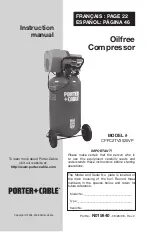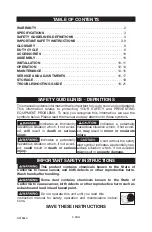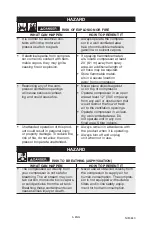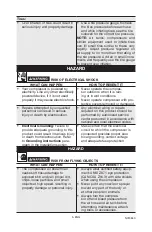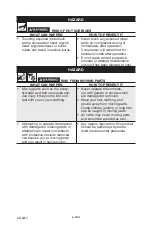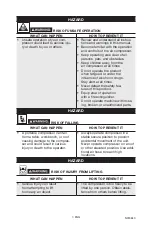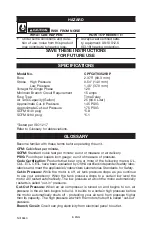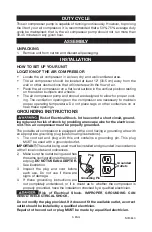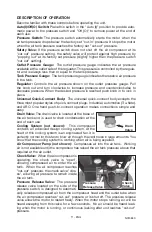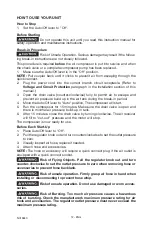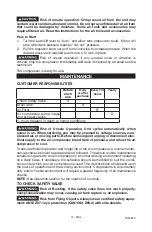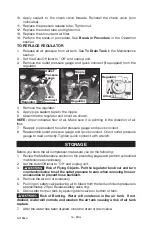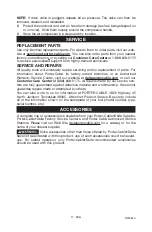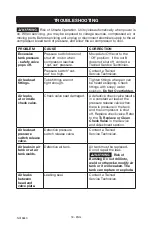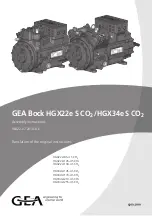
3 - ENG
N015840
HAZARD
RISk OF ExPLOSION OR FIRE
WHAT CAN HAPPEN
HOW TO PREVENT IT
• It is normal for electrical con-
tacts within the motor and
pressure switch to spark.
• Always operate the compres-
sor in a well ventilated area
free of combustible materials,
gasoline, or solvent vapors.
• If electrical sparks from compres-
sor come into contact with flam-
mable vapors, they may ignite,
causing fire or explosion.
• If spraying flammable materi-
als, locate compressor at least
20' (6.1 m) away from spray
area. An additional length of
air hose may be required.
• Store flammable materi-
als in a secure location
away from compressor.
• Restricting any of the com-
pressor ventilation openings
will cause serious overheat-
ing and could cause fire.
• Never place objects against
or on top of compressor.
• Operate compressor in an open
area at least 12" (30.5 cm) away
from any wall or obstruction that
would restrict the flow of fresh
air to the ventilation openings.
• Operate compressor in a clean,
dry well ventilated area. Do
not operate unit in any con-
fined area.
Store indoors.
• Unattended operation of this prod-
uct could result in personal injury
or property damage. To reduce the
risk of fire, do not allow the com-
pressor to operate unattended.
• Always remain in attendance with
the product when it is operating.
• Always turn off and unplug
unit when not in use.
HAZARD
RISk TO BREATHING (ASPHYxIATION)
WHAT CAN HAPPEN
HOW TO PREVENT IT
• The compressed air directly from
your compressor is not safe for
breathing. The air stream may con-
tain carbon monoxide, toxic vapors,
or solid particles from the air tank.
Breathing these contaminants can
cause serious injury or death.
• Never use air obtained directly from
the compressor to supply air for
human consumption. The compres-
sor is not equipped with suitable
filters and in-line safety equip-
ment for human consumption.

